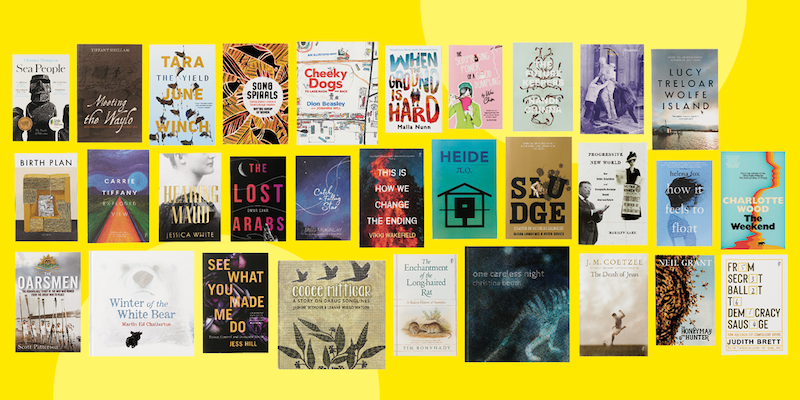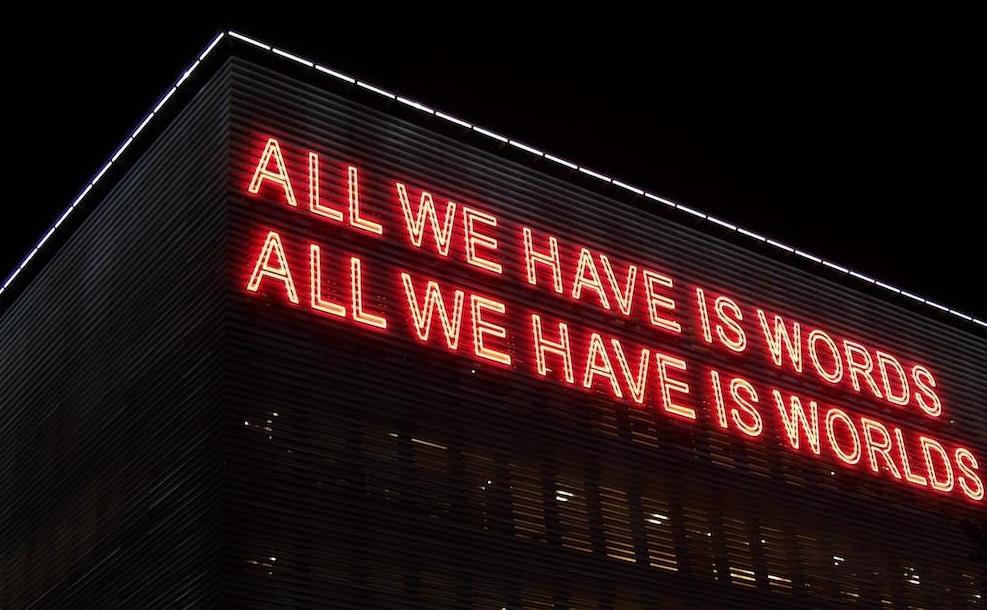Though it can remain unseen, language and art have immeasurable power to move people, and give people new and wondrous experiences.
ArtsHub asked the 2020 Prime Minister’s Literary Award nominees to describe an experience in which they realised language or art had power.
Christina Booth (One Careless Night, Children’s Literature)
I think I have always known that it is powerful. When I read my stories to students and people begin to cry (sorry) or students erupt in anger or frustration, I am reminded of the power of story. How it can change us, empower us, and guide us. It opens doors to conversations, which lead to discovery, then to understanding and connection. Creating art and storytelling through the process we choose is our human superpower.
A most memorable moment is when I read One Careless Night to students at a school in inner Sydney. They erupted into loud conversation, turning to each other expressing disbelief and anger when they learned the story of the last thylacine and that we still have animals today that are under similar threat. The teachers called for their attention, to settle down, but I asked for them to have a moment to release their emotions. Then we were able to settle into genuine, heartfelt conversation about what we could do as community and individuals to make a positive change.
Jasmine Seymour (Cooee Mittigar, Children’s Literature)
My uncle when given Cooee Mittigar, who has always been extremely reluctant to discuss his Aboriginality, started to read through the book and say the words quietly to himself. He then started to use some of them and his delight in speaking his language and seeing it in print is the most beautiful thing I have ever witnessed.
Language is culture. When you have access to your language you can reconnect to what has been stolen. Language is the path to reconciliation. I strongly believe that.
Johanna Bell (Cheeky Dog: To Lake Nash and Back with Dion Beasley, Children’s Literature)
In 2020, our first book, Too Many Cheeky Dogs, was translated into Kriol, and when I watched footage of families in Ngukurr sharing the story, I saw what a big difference it makes to have access to books in first language.
Lisa Gorton (Empirical, Poetry)
I remember counting down in Hide and Seek – sneaking the odd look through my fingers – and feeling the talismanic power of the numbers measuring out time until ‘Coming, ready or not’. The same for ‘It bit dog shit you are not IT!’
Nandi Chinna (The Future Keepers, Poetry)
I think I first realised that language and art had power as a young child. I can remember the feeling of reading Trumpet of the Swans by EB White. I was quite small, I must have been ill because I was lying in my parents bed reading the book. I could feel the power of the book in my body. I remember closing it at the end when I finished it, placing it carefully on the bedside table, and feeling completely moved and shifted from the person I had been before.
The next time this happened was when I read The Grapes of Wrath by John Steinbeck. That was in year 11 at high school. That book changed the way I view social justice and helped me to develop compassion and humanity. Since then of course there have been many others. It might sound old-fashioned but I am rereading The Tree of Man by Patrick White at the moment. This book seems to contain so much poetry. More recently reading the work of Kim Scott, and Alexis Wright I’m appreciating the power and beauty of these two writers.

The 2020 Prime Minister’s Literary Award nominated books. Supplied.
Neil Grant (The Honeyman and the Hunter, Young Adult Literature)
I am continually amazed that a two-dimensional set of symbols can bring me to tears, or to laughter, or to wonder. When I feel loss after finishing a particularly good book it is the same as when ending a holiday with family. That is powerful. Also, that I feel disgust and empathy in a character such as Grenouille in Patrick Süskind’s Perfume is so confusing to me.
Omar Sakr (The Lost Arabs, Poetry)
I remember in 2005, when I was 15, how Alan Jones was able to incite the Cronulla Riots using racist language about Lebanese boys, how his words, as well as viral text messages, were enough to whip up a mob of 5000 people.
I am the son of Lebanese and Turkish Muslim migrants, and growing up in the post-9/11 era meant that, even if my upbringing had been absent abuse, I would still know viscerally well the extraordinary power language has to enact harm. In bringing my experiences to the page, I hope to use language to engender a positive transformation, to summon into being a kinder, more loving community.
PiO (Heide, Poetry)
When I wrote I’m Brilliant I’m Fantastic I’m Great and it was broadcast on ABC radio across Australia, and people wrote (in those days) in to say it gave them strength.
Tiffany Shellam (Meeting the Waylo: Aboriginal Encounters in the Archipelago, Australian History)
I have spent a lot of time looking through the sketches and ethnographic collections that were made during Royal Navy expeditions in the early 19th century. Sometimes a simple ‘memory-jogger’ sketch says more about an encounter than any other story produced about it. I saw this power over and over again in museum collections too, where I was amazed by the heft of objects and how they could dictate the way a story had to be told.
Ms Wai Chim (The Surprising Power of a Good Dumpling, Young Adult Literature)
I think I was eight years old and had discovered how to use an old school thesaurus for the first time (the ones that weren’t alphabetical in their layout and you had to use the index…) Anyway, I was eight and wrote a poem with the thesaurus and won some silly competition that eight-year-olds win. But it made me realise, it’s not what you say but how you say it that matters.





